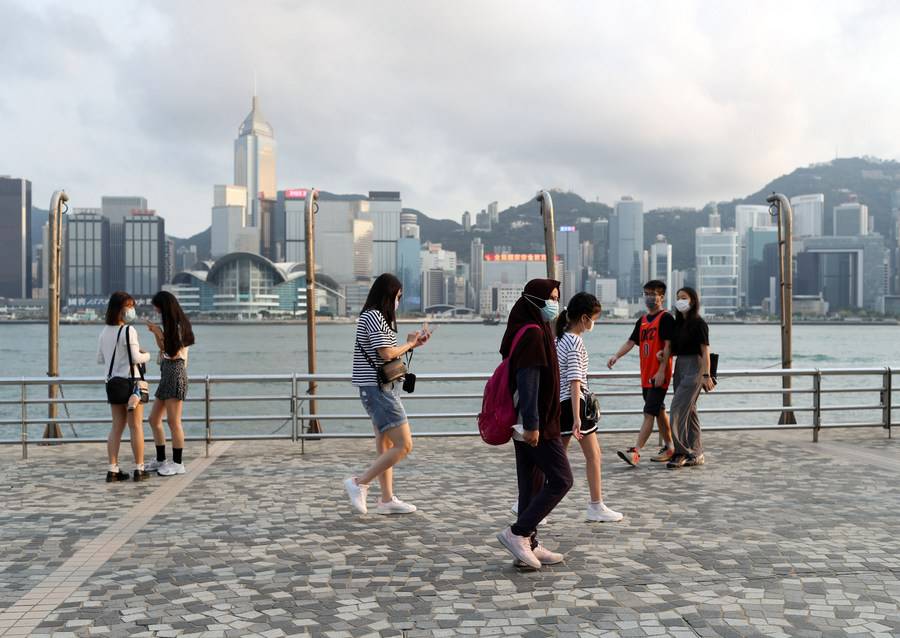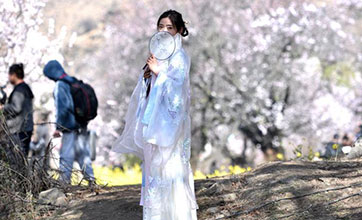Commentary: U.S. interference with HK doomed to fail

Citizens wearing masks walk on a street in Hong Kong, south China, April 2, 2021. (Xinhua/Li Gang)
At this critical moment when Hong Kong is moving from chaos to stability, some U.S. and Western diplomats like Smith are once again revealing their hegemonic mentality of interfering with China.
BEIJING, April 6 (Xinhua) -- China's central authorities have taken steps to improve Hong Kong's electoral system, and the public has enthusiastically supported it. However, Hanscom Smith, the U.S. Consul General in Hong Kong, twisted right and wrong and upended black and white.
Smith said -- on April Fool's Day no less -- that Hong Kong elections would not produce "meaningful democratic results." He further wrote in a local newspaper that "it is harder to recognize the Hong Kong that thrived for so long."
At this critical moment when Hong Kong is moving from chaos to stability, some U.S. and Western diplomats like Smith are once again revealing their hegemonic mentality of interfering with China.
They did not speak up when Hong Kong society was riddled with vandalism and robbery. They did not care about the mainstream public's opinion in Hong Kong for stability and development. But they jumped up and down at the time when Hong Kong's political system began to improve.
This is not because China has violated its commitment to "one country, two systems," or because improving the electoral system has undermined democracy or freedom, as they have claimed, but because the implementation of the principle "patriots administering Hong Kong" has deprived them of pawns to oppose China and disrupt Hong Kong.
The principle is not unique to Hong Kong or China. It is an internationally recognized basic requirement that those who govern must be loyal to their country, and it is also a principle that is commonly followed in the design of political systems around the world, including in the United States.
In practice, there is no uniform model of democracy, and Hong Kong's electoral system is not a replica of any other electoral system. It has a basis in local realities -- based on a comprehensive summary of years of practical experience in Hong Kong's elections.
Smith got part of it right, though. Hong Kong, in the future, is not going to be the one he recognizes. Hong Kong is a special administrative region of China, not a colony for anyone to invade, or the 51st state of the United States. The days that Smith and his likes call wind and summon rain are gone.
When the U.S. consulate, once as robust as a busy market, gets less and less traffic, and when those factions poised to subvert Hong Kong by being tools of foreign powers are punished by the law one by one, the scheme of Smith and his likes will no longer work.
Photos
Related Stories
- Biden announces all U.S. adults eligible for COVID-19 vaccine by April 19
- Big "Stop Asian Hate" rally and march held in New York
- US loses focus by inserting anti-China in infrastructure plan
- 9-year-old boy among victims of Southern California mass shooting: authorities
- China's goal has never been to surpass U.S.: FM spokesperson
Copyright © 2021 People's Daily Online. All Rights Reserved.










